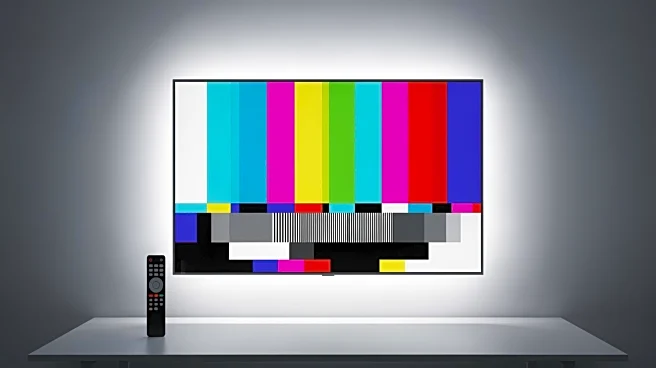What's Happening?
YouTube TV subscribers are experiencing a blackout of Disney-owned channels, including ESPN and ABC, due to a breakdown in negotiations over distribution fees. This dispute has resulted in over 10 million subscribers losing access to these channels, affecting
the viewing of major events such as 'Monday Night Football' and ABC's election day coverage. Disney has requested that YouTube TV temporarily restore ABC for election coverage, but YouTube declined, citing potential customer confusion. The blackout is part of a larger trend of disputes in the television industry over carriage fees.
Why It's Important?
The blackout highlights ongoing tensions in the television industry as content providers like Disney seek higher fees to cover rising costs, particularly for sports programming. This situation affects millions of viewers who rely on these channels for sports and news coverage. The dispute underscores the challenges faced by traditional and streaming TV services in balancing content costs with consumer pricing. The outcome of this dispute could influence future negotiations and the structure of TV service offerings, potentially impacting consumer choices and the financial health of media companies.
What's Next?
If the blackout continues, YouTube TV has indicated it may offer subscribers a $20 credit. Meanwhile, Disney and YouTube TV are expected to continue negotiations to reach a new agreement. The resolution of this dispute could set a precedent for future carriage negotiations, affecting how content is distributed and priced across platforms. Stakeholders, including political figures and regulatory bodies, may become involved if the blackout impacts significant public events or consumer access to information.
Beyond the Headlines
This dispute reflects broader shifts in the media landscape, where traditional cable and satellite services are losing subscribers to streaming platforms. As more consumers 'cut the cord,' the dynamics of content distribution and pricing are evolving. The outcome of this dispute could influence how media companies and distributors approach content licensing and consumer engagement in the future.

















